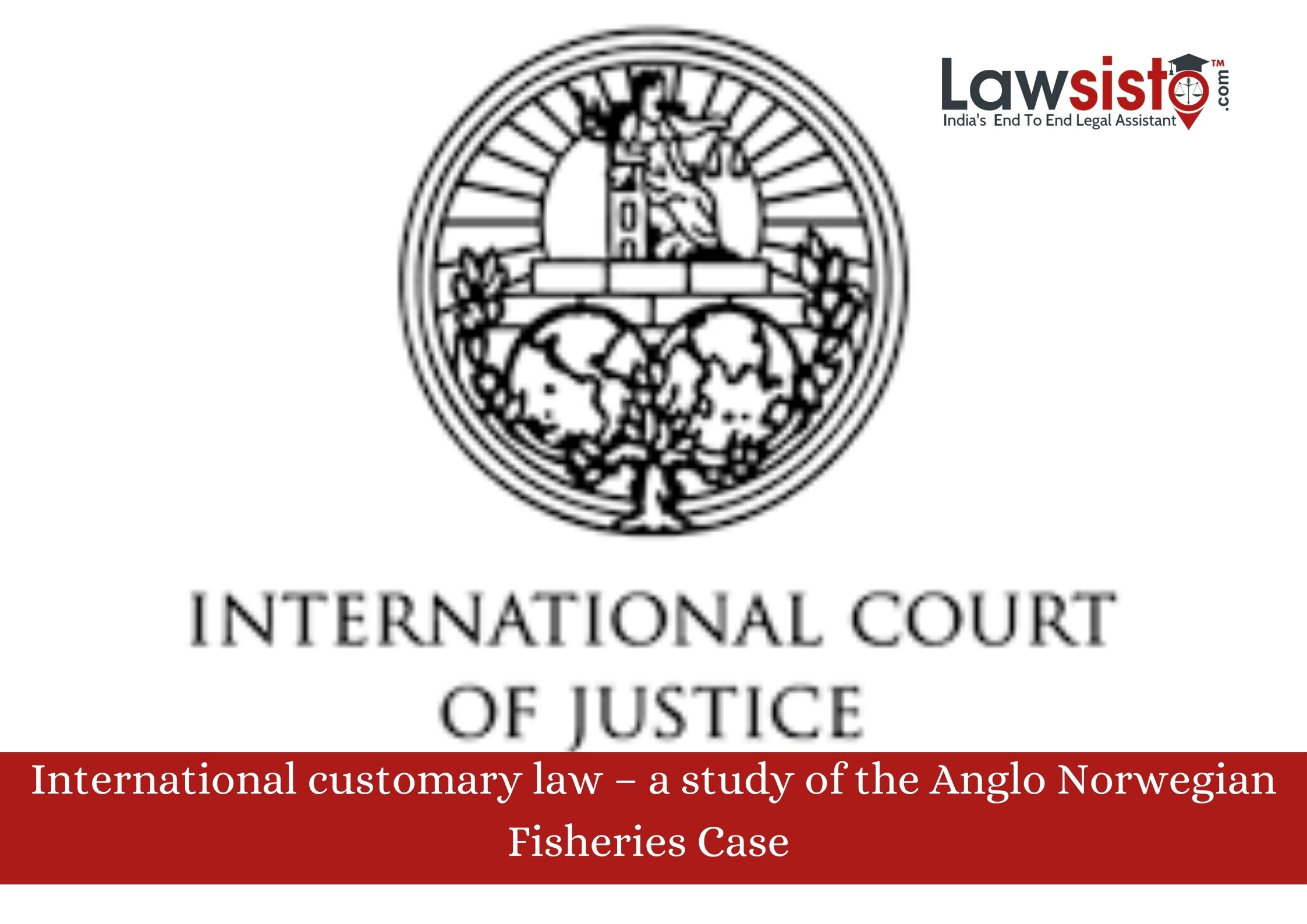Latest News
International customary law – a study of the Anglo Norwegian Fisheries Case

International customary law – a study of the Anglo Norwegian Fisheries Case
If states under international law are not a party to any of the Geneva convention of the Territorial and continental shelf, convention on High seas on Fishing and convention of living resources of high seas then the states can be governed by the Customary rules of International Law.
There are shallow banks along the Norwegian Coastline which are very rich in fish and the people of the Norwegian coastline derive their livelihood essentials from such fishing. The United Kingdom invaded the Norwegian shallow banks many times and the 1935 decree was formed between the states to resolve their disputes over the fishing zone but the decree was futile.
Hence UK of Great Britain and Northern Ireland initiated legal proceedings against Norway asking the Norwegian government to pay damages to the government of the UK in respect of the interference of the Norwegian government in Fishing zones.
Facts of the case:
- For the past 300 years, the British fisherman had made an incursion in waters near the Norwegian coast.
- In 1906 British vessels appeared with equipped trawlers near the coast and repeatedly invaded the Norwegian coastal region.
- Hence on 12th July 1935, the Norwegian government delimited the (north Arctic circle) Norwegian fishery zones to its nationals by the Decree after negotiation between the Government.
- Delimitation is the process of establishing lines separating the spatial ambit of coastal state jurisdiction over maritime space where the legal title overlaps with that of another state
- But the decree was unsuccessful as many British travellers were arrested, condemned, and the British ships were also seized on the Norway coastal area in 1948 and 1949.
- Hence United Kingdom of Great Britain and Northern Ireland initiated proceeding against the Norwegian government before the International Court of Justice (ICJ).
- UK filed a suit requesting the ICJ to determine the international principles of law governing the delimitation process in law and to determine whether the
- decree passed to delimit the fishery zone by the Norwegian government is consistent with International Law
- the baselines fixed by the Norwegian government is consistent with international law
- UK government contended that according to principles of international law the length of baselines must be 10 miles and the baselines formed by the Norwegian government is contrary to the principle of International Law.
- Whereas the Norwegian government contended that baselines must be drawn looking into the facts and circumstances and must be adapted to special conditions in different regions and the 1935 delimitation by the use of straight lines does not interfere or infringe general international law as the delimitation was necessary by local conditions.
The Judicial reasoning given by the Judges
- The International Court of Justice while giving its judgement held that “even though the ten-mile rule has been adopted by certain states in the national case and their treaties and conventions, the ten-mile rule has not acquired the authority of the general rule of International law” hence 1935 delimitation does not violate principles of international law.
- The court also held that according to persistent objector rule international customary law will not apply to states if the state objected to the application of the international customary rule in the initial stage in a consistent manner and Norway had refused to accept the 10-mile rule since 1870.
- Court also observed that there was no objection from any other state till today. Norwegian decree, reports, diplomatic correspondents and also the method of straight lines(baselines) encountered no opposition from any other states and the even UK did not contest it for many years.
- The general toleration of the international community, therefore, shows that the Norwegian system was not regarded as contrary to International Law.
Judgment
The ICJ held that the method employed by the decree of 1935 is not contrary to international law and the baselines fixed by the decree are not contrary to International Law. The first finding is adopted by Ten votes to two and the second by eight votes to four.
However other judges gave a dissenting opinion about the issue. Justice Hsu Mo, Mc Nair and Read held that the Norway system is not compatible with International Law and drawing straight lines as of 1935 are moving away from the practice of general rule.
To conclude even though the judgment was in favour of the Norwegian government. we have to consider this judgement in the long run and as the opinion given by the other judges, it is pretty much clear that the Norwegian Government has a historic title over the deep sea and the measurement of a straight line is not according to the international customary Law hence UK government should also have some rights over the deep-sea shallow banks.
Document:



































































































